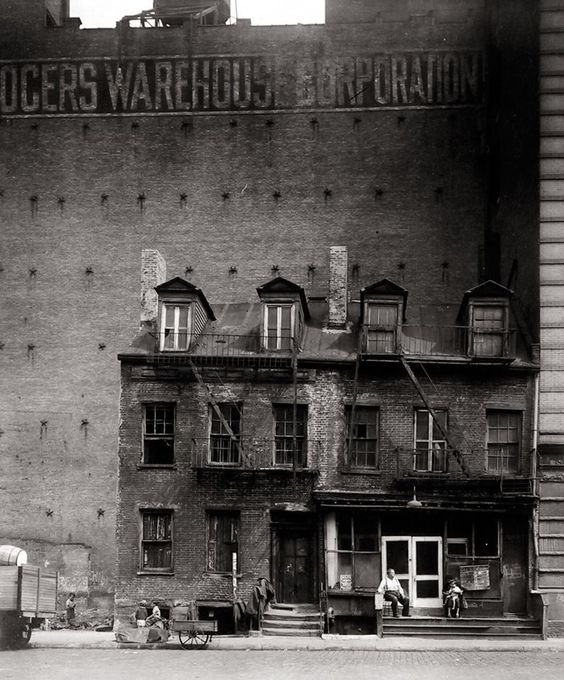The More Things Change...
 |
| This 1935 photo by Berenice Abbott shows 512-514 Broome Street, Manhattan, New York. |
That lady knew how to take photographs!
While this blog usually looks at photos from the 1960s through the 1980s, occasionally an older photo intrigues me enough to do a little research on it. Such was the case with the above photo by pioneering photographer Berenice Abbott (1898-1991). She began her career in Paris but moved to New York in 1929 - just in time for the Stock Market Crash. After scratching out an existence for the next five years, she happily was picked by the city to contribute to a project called “Changing New York.” Funding was allocated by the U.S. Government commissioned through the New Deal art projects WPA Collection. This was one of many similar efforts to employ artists of various types during the Great Depression, and Abbott rewarded the city by taking some of the most evocative shots of the city ever, both before and since.
2023
Abbott took the photo above of some dwellings at 512-514 Broome Street in 1935. Her choice perhaps was influenced by a friend, Professor Henry-Russell Hitchcock, who asked her to focus on antebellum buildings. In any event, Abbott's photograph of the Broome Street buildings is stunning and shows a deep understanding of all aspects of photography.
In Nathan Silver's classic "Lost New York" (1967), he references the above photo and claims that the buildings "are now gone." Well, not exactly, Nate. We are going to do a then-and-now comparison of the corner of Broome Street and Thompson Street in NYC.
 |
| Another photo of the same scene in the 1930s, around the same time as the Berenice Abbott photo (Peter Sekaer). |
While the photo doesn't show it, the buildings were made of red-painted brick. These were typical buildings from the pre-war - pre-Civil War - era and typically were twenty-five feet wide and two or three stories tall. They were two rooms deep - city tax laws favored narrow but long residence buildings - with pitched roofs and dormers.
So, let's look at the same site "now."
 |
| 512-514 Broome Street July 2022 (Google Street View). |
As New Yorkers may know, Broome Street lies in the neighborhood of SoHo, which stands for South of Houston Street. It now is one of the more fashionable areas of the city, but it wasn't in the 1930s. The large warehouse in the background was a Grocers Warehouse Corporation building on Thompson Street. If you're wondering how all these old buildings survived, well, partly it is due to serendipity. They all, however, just missed being included in either the Soho-Cast Iron District or the Sullivan-Thompson Historic District, so it seems the city wasn't doing anything to save them.
However, the tax laws favor remodeling and renovating old structures rather than completely replacing them, so the city actually did have something to do with saving them, albeit indirectly. That's why a grungy old warehouse will be left standing and have windows cut into the walls for new apartments rather than just tearing down the entire thing.
The former warehouse in the background at 52-54 Thompson Street is said to have been built in 1900. That's just broker-speak, however. It actually means it was built at some uncertain point in the 1800s. It was converted to condominiums at some point, but not just ordinary cookie-cutter condos. There are six floors with condos in the building, and each condo takes up an entire floor. A current listing as of this writing in 2021 shows a 10-room unit for sale for $13 million. So, there's money in those old buildings if you know what to do with them.
As these photos show, New York City is an evolving place with its roots firmly anchored in the past. While needs change and styles come and go, buildings often are not simply disposed of as many people think. Instead, they are repurposed and reimagined. Those grungy old buildings from the past were not old soldiers destined to fade away, but instead are survivors that withstood the destructive forces of time and outlived almost all of their former owners.
I hope you found this article interesting. If so, please visit more of our entries in this "the more things change, the more they stay the same" series. Thanks for visiting!


No comments:
Post a Comment